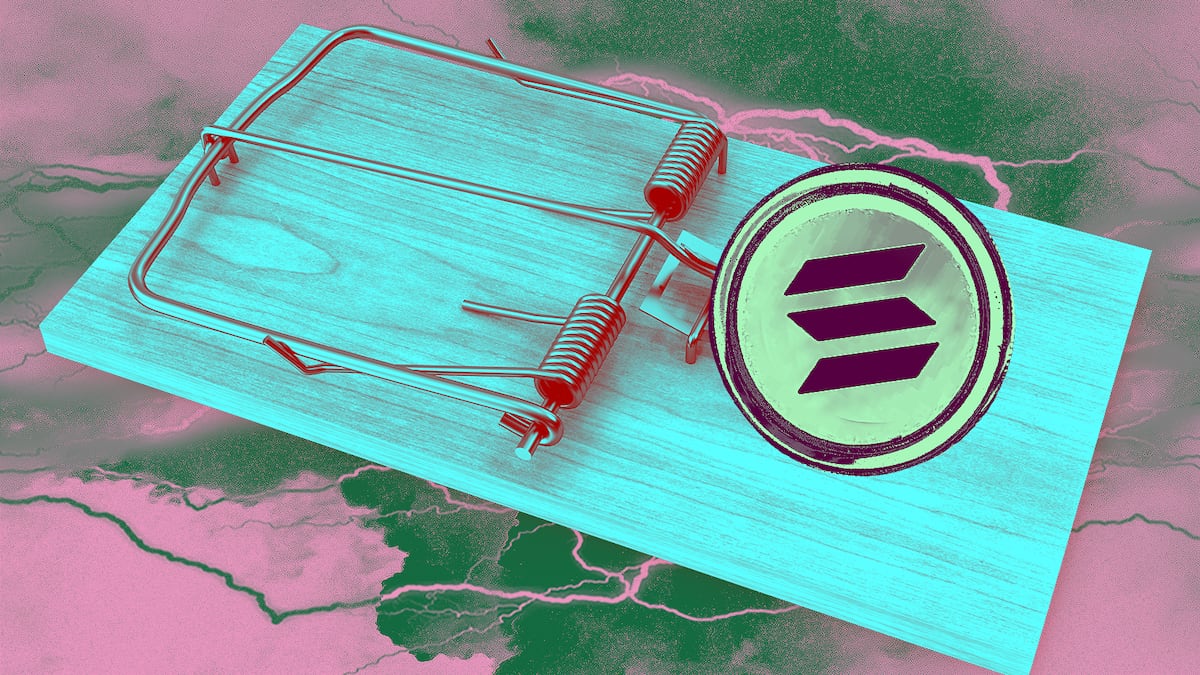- A bug in Lido's Solana protocol code is preventing withdrawals.
- Lido sunset its Solana protocol in February, removing its web interface.
- But the protocol still holds $24 million worth of SOL.
Users of Lido’s SOL staking protocol are fearing the worst after a code bug blocked access to $24 million in deposits.
Lido is a liquid staking protocol — it lets users stake tokens and receive placeholder tokens in return that can be used in other DeFi protocols. With more than $31 billion of deposits, Lido is the biggest protocol in DeFi.
But Lido’s Solana version, which lets users stake SOL and receive stSOL tokens in return, was not popular compared to the more dominant Solana liquid staking protocols Marinade and Jito. In October, Lido announced plans to discontinue its Solana version and remove the webpage that let stSOL holders exchange their tokens for SOL.
When Lido removed the webpage in February, users still held over 112,000 stSOL with a market value of over $24 million.
In addition to having no easy way to withdraw their funds, a newly-found bug in Lido’s smart contracts is also preventing stSOL holders from withdrawing their funds.
Now the more than 31,000 wallets holding stSOL are stuck in limbo.
Lido did not respond to a request for comment.
‘I’m not a programmer’
When Lido removed the webpage for its Solana version in February, it forced those with funds still deposited to Lido to interact directly with the protocol’s code to get back their tokens — a difficult and dangerous task for those with limited technical knowledge.
Despite Lido giving stSOL holders almost five months notice before removing the web interface, many still missed the deadline.
“I’m really so disappointed,” a user posting under the name Thehaddon said in the Lido Discord. “I’m not a programmer, and without an official web interface I have no means of doing this.”
The deprecated web interface isn’t the only thing preventing stSOL holders from accessing their tokens.
A bug in the code affecting the protocol’s smart contract logic is also preventing withdrawals, Pavel Pavlov, a product manager at P2P, said in a March 30 Discord post.
P2P is the firm tasked with running Lido’s Solana protocol before its deprecation.
“Changing the smart contract is quite significant in terms of complexity and time,” Pavlov said. “Sadly, there is no estimated time of arrival available.”
Pavlov did not respond to a request for comment.
‘Terrible communication’
Others have criticised Lido’s decision to discontinue its Solana protocol.
“It’s just terrible communication and not good treatment of their stakers,” J, a pseudonymous team member at Sanctum, a protocol that lets users easily switch between different staked SOL tokens, said in a March 29 X post.
J told DL News that those with funds trapped in Lido’s stSOL token could use Sanctum to trade them for SOL or other liquid staking tokens.
“This isn’t communicated at all to their users,” J said.
Staking on Solana has remained popular. More than 65% of all SOL tokens are staked on the network.
However, only around 3.5% of all SOL is staked through liquid staking protocols.
Lucas Bruder, CEO of Solana liquid staking protocol creator Jito Labs, previously told DL News that there was a “huge opportunity” to grow the liquid staking market on Solana.
Tim Craig is DL News’ Edinburgh-based DeFi Correspondent. Reach out to him with tips at tim@dlnews.com.


